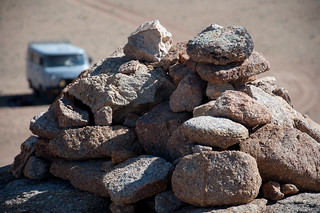 |
| Photo by Vera Kratochvil |
I confess, I'm a daydreamer.
Okay, to be more honest, I'm an extreme daydreamer. Or perhaps "pathological" would be a more honest word.
Perhaps you don't daydream...but you DO fill up your mind with other people's imaginations in the form of novels, TV shows, and movies. Or perhaps you feast your mind on endless video games. Whatever your mental escape may be, it's probably fine in small doses.
The problem with me was, daydreaming became a drug. It became Escape. I never had to "be there" mentally, even if I was there physically.
Do you have a problem with mental escapism? Perhaps, like me, one of the reasons you find it easy to slip into "escape mode" is that it's hard to see what's wrong with it. If that describes you, and you really don't feel like you're missing out on anything by excessive escaping, you'll definitely want to prayerfully consider the requests I've written below.
Or, perhaps your form(s) of escapism have become an addiction...as I'm ashamed to admit they have with me. Especially my imagination; my skill at weaving compelling dramas in my head. It's so much a part of me that I hardly feel like it's optional. The stories are always there, always waiting, always beckoning, always entertaining, always seeming to fulfill a need.
In fact, our mental escapes are far more responsive than God is. We've got to wait on the Lord, but entertaining screens are never far away. We never have to wait for our imagination either. And how do you walk away from a drug that literally resides inside your head? There's no passing by the fantasy counter, the way people can choose to pass by the cigarette counter.
But after a while, as Christians, we have to come to terms with the fact that we love and trust our oh-so-available escapes more than we love and trust the God we can't control.
Then what do we do?
Scripture tells us that conquering bad habits by mere force of will doesn't make us righteous before God. That's the Pharisaical approach, and it only trades the original sin for the greater sin of religious pride.
Romans 8 tells us that we must put sinful deeds to death "by the Spirit."
And how does the Spirit work? He works by drawing us to read the Scriptures, illuminating it to our minds, helping us love and revere God as revealed in His Word (and to love His word for revealing Him to us), recalling the truth to our minds (especially if we memorized it), teaching us to love what God loves and hate what God hates, and changing our hearts to want to obey Him. In this way, He turns our hearts onto the right paths.
So I decided to attack the problem of excessive daydreaming with some specifically targeted prayers, ones which help me aim for ways to pursue a joy in Christ that's better than mental escapism. And I thought I'd share them with you, in case I'm not the only one with this problem. So without further ado, here are:
Prayers for Daydreamers
(and other mental escapists)
(and other mental escapists)
2. Instead of daydreaming/mentally escaping, by Your grace may I obey the command to "Love my neighbor as myself." Because the fact is, I can't recognize my neighbor's needs or prioritize them in my life if I'm wrapped up in my fantasy world.
3. Help me to "Walk as as child of light, trying to discern what is pleasing to the Lord" (Eph 5:8-10). I can't be constantly trying to discern what is pleasing to the Lord in my real circumstances if I'm daydreaming about being in different ones.
4. Help to obey Your command that says, "Whatever you do, work heartily, as for the Lord and not for men." Forgive me, Lord, that I used to think this meant "Try not to mind the work by distracting myself with my imagination." After all, what's heartier than my imagination? But no, it means putting my heart into the work itself in order to lovingly serve others and willingly obey You in the situation You've actually created for me. It means "redeeming the time," in my real world.
5. Spirit, please help me to "In everything give thanks." Daydreaming prevents me from noticing things to be thankful for, or from even committing to noticing them.
6. Help me to remember that I can't "Behold the Lord and be changed into His image, from one degree of glory to another" (2 Co 3:18) if I'm constantly beholding the contents of my imagination instead.
7. Help me, Spirit, to obey the command: "You shall meditate on God's Word day and night, that you may be careful to do it." Ignoring Your Word is the same as disdaining Your commands, Your promises, and Your blessings. It means not caring whether I obey You or not.
8. Help me to "Pray without ceasing." I clearly can't do that while mentally escaping into fantasy or video games.
9. Help me to receive the blessings of Truth, such as sanctification (John 17:17) and freedom (John 8:32). All commands, promises, and blessings related to Truth are blocked by an insistence on living with the mind marinating in what is not true. The blessings of Truth can only be applied to my actual reality, even in all its periodic ugliness.
10. Help me to cooperate with You as You prepare my heart to "Go to Him outside the camp, bearing His reproach" (Heb. 13:13) In our daydreams we feed our lust for glory, we dream of human accolades, we focus on mastery rather than dependence, and we further unfit our hearts for bearing His reproach.
Can you see how different this is from "white-knuckle fighting" with our sin? By the Spirit we seek to love God more, to find our joy in God instead of in sin. He alone makes that possible, because we can't change our hearts ourselves. But we can and must choose to seek Him, to "fight the good fight" against our tendency to believe the promises of sin more than the promises of God. We can and must pray and wrestle and repent in the fight for the greatest joy there is...the joy of believing and knowing Him.


































